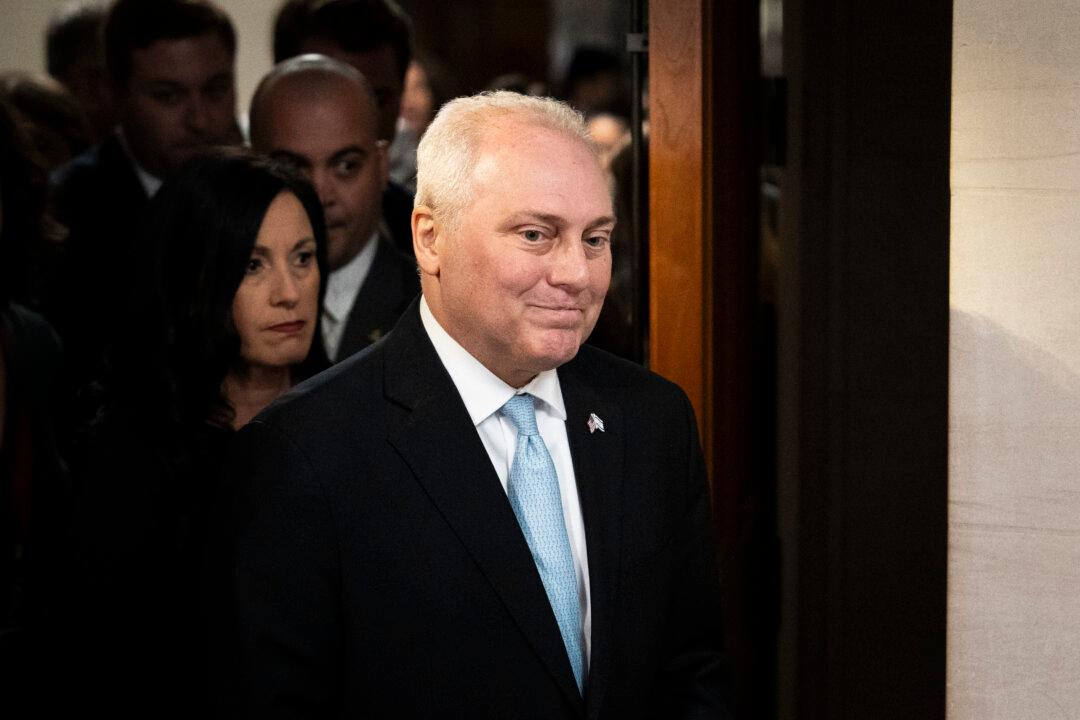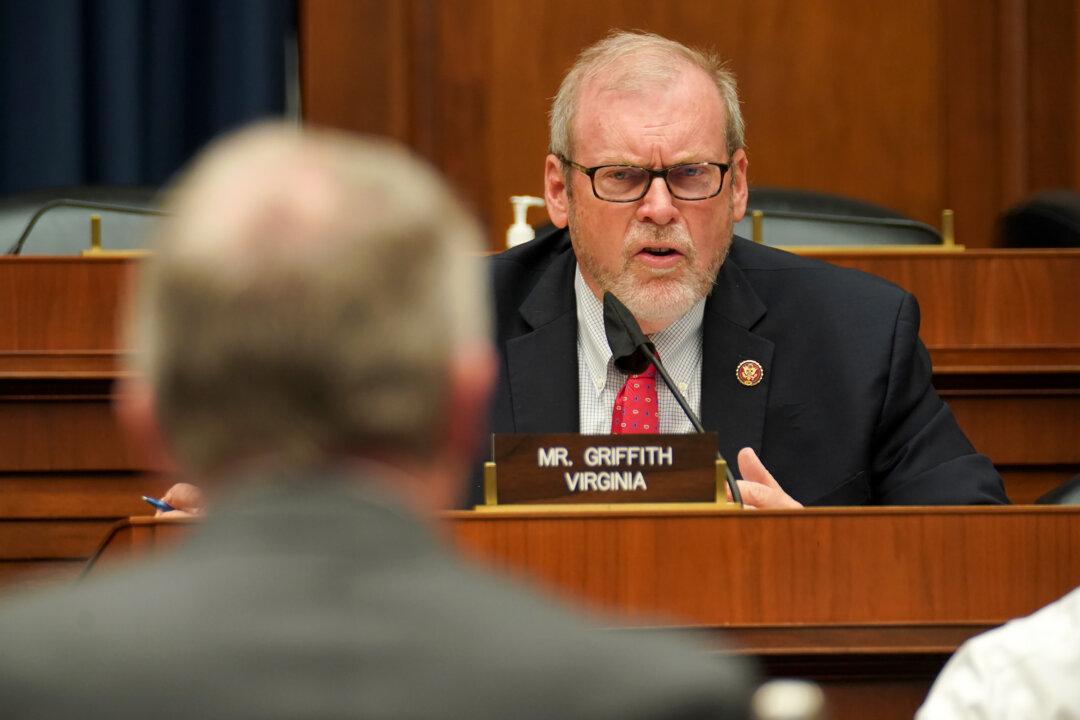House Majority Leader Steve Scalise’s (R-La.) first act as the Republican nominee for speaker was to postpone the election in the House of Representatives.
The Republican conference nominated Mr. Scalise on Oct. 11, less than two hours ahead of a scheduled floor vote that would pit Mr. Scalise against Minority Leader Hakeem Jeffries (D-N.Y.).





